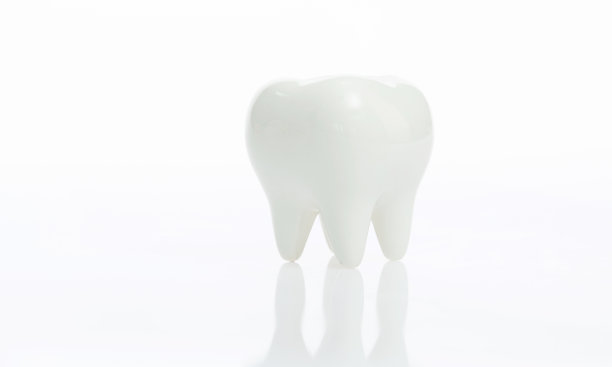Summary: Periodontal disease is not merely a dental concern; it significantly influences overall health and quality of life. This article explores the multifaceted impact of periodontal disease through four primary dimensions: its connection to systemic health conditions, effects on mental well-being, implications for nutrition and dietary habits, and its role in social interactions. By understanding these relationships, we can better appreciate the need for effective prevention and treatment strategies, highlighting the importance of maintaining oral health as part of comprehensive healthcare.
1. Link Between Periodontal Disease and Systemic Health

Research has established a clear connection between periodontal disease and various systemic health issues, making it essential to understand its broader implications. Chronic inflammation, a hallmark of periodontal disease, can exacerbate conditions such as diabetes and cardiovascular diseases. The inflammatory response triggered by oral bacteria can contribute to insulin resistance, worsening glycemic control in diabetic patients.
Moreover, studies have indicated that individuals with periodontal disease are at a heightened risk for heart diseases. The bacteria responsible for periodontal infections can enter the bloodstream, potentially leading to arterial plaque formation and increasing the risk of heart attacks and strokes. This interrelation underscores the importance of treating periodontal disease not only to preserve dental health but also to reduce the risk of serious systemic conditions.
Additionally, periodontal disease can negatively affect respiratory health. The aspiration of oral bacteria into the lungs can lead to pneumonia and other respiratory illnesses, particularly in vulnerable populations. Hence, managing periodontal disease is crucial for improving overall health outcomes.
2. Impact on Mental Health and Well-Being
The repercussions of periodontal disease extend beyond physical health, significantly impacting mental health and well-being. Individuals suffering from periodontal issues often experience symptoms of anxiety and depression due to persistent pain and discomfort. The constant dental discomfort can lead to a decline in overall quality of life, contributing to feelings of hopelessness and frustration.
Moreover, the psychosocial effects of periodontal disease can lead to social withdrawal. Individuals may feel embarrassed about their oral health, impacting their willingness to engage in social activities or maintain relationships. This avoidance can exacerbate feelings of isolation, thus affecting overall mental health.
Studies have shown that treating periodontal disease positively influences mental health. Patients who receive effective treatment often report improvements in mood and self-esteem. This highlights the importance of addressing periodontal health not just for physical reasons but also to enhance overall emotional and psychological well-being.
3. Nutritional Challenges and Dietary Adjustments
Periodontal disease can create significant challenges for nutrition and dietary habits. Individuals with gum disease may experience pain while chewing, which can lead to reduced food intake and poor nutrition. This altered eating behavior not only affects oral health but may also contribute to nutritional deficiencies that can have further health implications.
Additionally, people suffering from periodontal disease may gravitate towards softer foods that are easier to consume, such as processed snacks, which are often lower in nutritional value. This shift can lead to weight gain, obesity, and other health issues associated with poor dietary choices. A balanced diet is crucial, and periodontal disease disrupts the ability to maintain one.
Improving oral health can restore an individuals ability to consume a wider variety of foods, thereby enhancing nutritional intake. Effective periodontal treatment allows for the reintroduction of healthy foods that promote better overall health and prevent further systemic issues.
4. Effects on Social Interactions and Relationships
Social interactions are profoundly affected by periodontal disease. Many individuals with oral health issues may feel self-conscious about their smile or breath, leading to social anxiety and avoidance. This behavior can strain personal and professional relationships, negatively impacting one’s social life.
Moreover, the stigma surrounding dental health can further alienate individuals suffering from periodontal disease. The fear of judgment can prevent them from seeking treatment and affect their overall confidence, leading to a cyclical pattern of avoidance and declining health.
Conversely, improving periodontal health can enhance an individuals social life. With healthier teeth and gums, individuals often feel more confident and willing to engage socially. This renewed confidence can lead to improved relationships and social networks, thereby enhancing quality of life.
Summary:
In closing, the multifaceted impact of periodontal disease extends across several dimensions of health and well-being. Its connections to systemic health issues, mental health challenges, nutritional struggles, and social interactions demonstrate the critical importance of maintaining oral health. Addressing periodontal disease not only benefits dental health but also enhances overall quality of life, emphasizing the need for comprehensive preventive care.
This article is compiled by Vickong Dental and the content is for reference only
Vickong Dental
Vickong Dental is a large medical group established in Hong Kong in 2008 by professors from well-known medical universities in Guangdong and Hong Kong, as well as medical doctors from key national '985' universities (including Master's supervisors and senior professors). The chain of branches brings together expert dentists with PhDs and Master's degrees from Hong Kong and Mainland China, committed to providing high-quality dental treatment.
"Vickong Dental Practices the University Motto of 'Healing and Serving Society,' with a Stable Operation for Sixteen Years. It Has Been honored with Hong Kong Enterprise Leaders's Choice,' and is a Global Trusted Implant Center for the Nobel Implant System. Recommended by Hong Kong Metro Broadcast and Guangdong Television, it Serves Customers from Over Thirty Countries and Regions, Gaining the Trust and Favor of Citizens from the Guangdong-Hong Kong-Macau Greater Bay Area and Surrounding Cities.

Thousands of customers' unanimous praise
The most recognized and highly recommended dental service by customers in the Guangdong-Hong Kong-Macau Greater Bay Area
We Ensure You Receive Detailed Care and Attention Here
Hong Kong standards, Shenzhen prices, Your Trusted English-speaking dentists

Vickong Dental Medical-Grade Instrument Disinfection Process
Vickong Dental Medical-Grade Instrument Disinfection Process

Vickong Dental Chain: A Warm and Comfortable Environment for Treatment






Appointment Hours

Q&A
Why choose Vickong Dental?
Vickong Dental practices the university motto 「Medicine to Benefit Society」, with each branch bringing together highly qualified dentists with doctoral and master’s degrees from Hong Kong and the Mainland, and has maintained seventeen years of steady operation。Recipient of 「2024 Hong Kong Enterprise Leaders Brand」, 「2025 Hong Kong Enterprise Leaders Brand」, a Nobel Biocare Global Trusted Implant Center, and a brand recommended by Metro Radio Hong Kong and Guangdong TV。
To date, we have served customers from more than thirty countries and regions,earning exceptionally high word-of-mouth recognition and trusted recommendations from residents across the Guangdong-Hong Kong-Macao Greater Bay Area and surrounding cities
We have eight major branches in Zhuhai、Shenzhen,and a consultation and service assurance center in Hong Kong,so you can book a free consultation at any time for any questions,which is very reassuring.
If I do not accept the quotation after the CT scan, will I be charged??
No! As long as the actual treatment has not started, you will not be charged any fees.
Will there be any additional charges during the treatment process?
No, there won’t be any additional charges. Before treatment begins, we will clearly explain the treatment plan and its corresponding fees. Only after the patient agrees and signs the consent form will we proceed with the dental service.
Can I pay in Hong Kong dollars?
Yes. Vickong Dental accepts payment in Hong Kong dollars. The amount will be converted based on the exchange rate of the day, and the applicable rate will be clearly communicated to you in advance.
Can I reschedule my appointment at any time?
Yes. Please contact us via **WeChat** or **WhatsApp** as early as possible, providing your original appointment time and details, along with your preferred new date and time slot for rescheduling.













